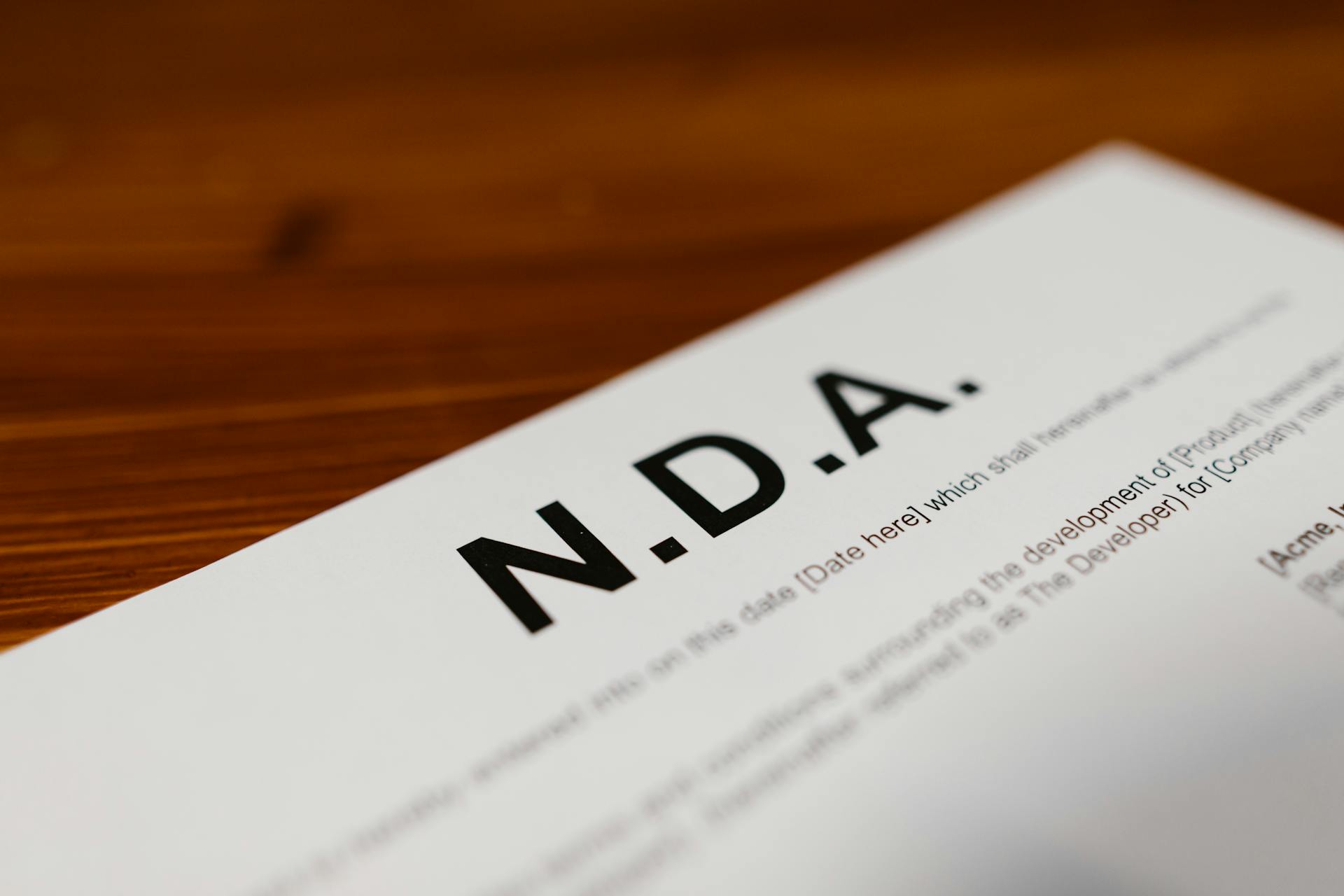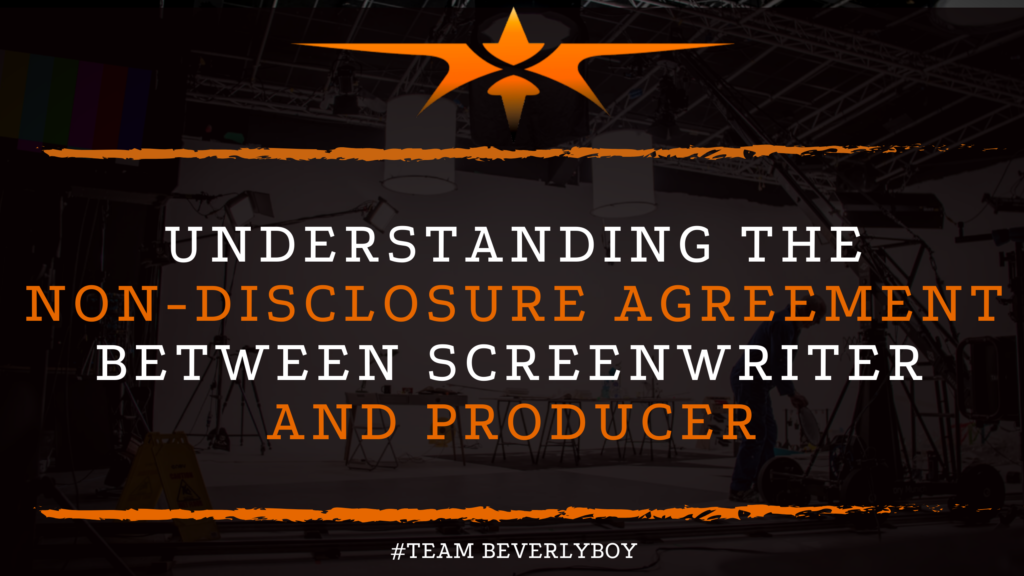Understanding the Non-Disclosure Agreement Between Screenwriter and Producer
Protecting your assets as a screenwriter is a daily chore. You naturally want to share your ideas with the producers that could potentially bring them to fruition but you also realize that there are people in this world that are not who they say they are. Thus, the non-disclosure agreement between screenwriter and producer is something that you will almost certainly face many times over the course of your career and for good cause. Anytime you’re sharing your film concepts and ideas, you must protect yourself and your assets from being stolen. But is such harsh action always necessary?

A Film NDA
The film non-disclosure agreement (NDA) represents a formal document the screenwriter and the producer can execute to ensure that the original film concepts. Including storyline or screenplay.
As well as any supporting materials that are shared during a confidential meeting are kept that way – protected, and confidential. The NDA states that the information disclosed is done so with great care.
And that absolute secrecy should be maintained between you and the other party involved in the NDA.
But, Isn’t Copyright Protection Enough?
If you’re thinking that your screenplay is already under protection by U.S. Copyright laws, you’re right, partially. However, the protections afforded by U.S. Copyright are only for a completed, published, and registered screenplay.
Well, technically, you don’t have to register the screenplay in order for it to be protected by copyright but you will have to register if you intend to sue for infringement so the two kinds of go hand-in-hand.
However, what if you haven’t written an entire screenplay yet? You know that U.S. Copyright Law does not protect a film concept or idea that you have.
Unless you’ve at least fleshed out the outline for your screenplay and protected it with a copyright in that way. So, what can a screenwriter do to protect their ideas?
The Non-Disclosure Agreement Between Screenwriter and Producer
This is where the non-disclosure agreement between screenwriter and producer comes into play. The agreement is important to provide protection for the screenwriter.
In the event that they have not yet finished writing and publishing the screenplay. Which would mean that there’s no copyright protection yet.
The non-disclosure or NDA offers unique protections, even for the ideas that the screenwriter has. This means that the screenwriter can have the producer sign the NDA.
And then, any communication that the two parties have between one-another regarding the screenplay. Including ideas about actors or specific concepts that apply to the production, will be kept confidential and private between them.
Protecting a Film Concept with an NDA
The non-disclosure agreement between screenwriter and producer provides protection for a film concept as long as you meet three very distinct requirements.
Unlike a copyright which will provide protection for your screenplay once it has been published. The NDA provides you protection in the event that you discuss your ideas for a screenplay before it’s even been written out.
In order to protect your film concept with an NDA, you must meet the following important requirements:
- You must have an agreement between yourself and the other party that mentions that disclosing information is confidential. And that the receiving party has solicited the film concept for potential financial exploitation.
- The purpose of disclosure must be related to potential generation of revenue.
- Both parties must sign the NDA to ensure coverage.
Establishing a Clear Outline
Entering into an NDA between yourself and a producer is a big step. But it’s necessary to protect your ideas if you’re in the entry stages. And have yet to establish a clear outline for a film that could otherwise be copyright protected.
What Happens if the NDA is Broken?
Entering into a non-disclosure agreement between screenwriter and producer is a big step. But you must also decide how you will handle legal action should the disclosure agreement be broken.
Because the NDA is a legal contract, you have rights to take legal action if the receiving party leaks your confidential information in any way. Or otherwise releases your proprietary information without your knowledge or consent.
Generally speaking, the NDA will provide for coverage of attorney’s fees and expenses in the event that you must bring litigation forth for the violation of the non-disclosure agreement between the screenwriter and the producer.
Breach of Contract
In fact, if the producer breaks the agreement of an NDA you can pursue damages for breach of contract. Additional legal recourse may also be available in the form of copyright infringement if you’ve protected your work since then as well as other potential resources.
Each situation is different. But the key here is that when you enter a non-disclosure agreement between screenwriter and producer. The agreement is not to be broken.
Severing the agreement will result in your having very explicit legal recourses against the individual or entity that broken the agreement between you and that potentially stole or otherwise risk your screenplay ideas or proprietary information.
Is an NDA Always Required?
So, you’re probably wondering if it’s always necessary to enter a non-disclosure agreement between screenwriter and producer? The answer is – NO! You do not need to protect your ideas with an NDA if you’ve already produced your screenplay and protected it with a copyright.
Additionally, the NDA is not necessary if you’ll be hired by the producer to create a work made for hire in which the producer retains the right to any copyright of the finished screenplay.
The Takeaway
However, anytime a conversation will take place between the screenwriter and a producer. In which there is the potential for detailed information about a film idea or project to be released.
In which there are not already copyright protections in place and a work for hire agreement will not be entered into. We recommend an NDA to protect your ideas.
The NDA provides you with the best legal recourse to protect your proprietary information and ideas for a film in the event that a copyright is not yet in order should the ideas be new and not yet prepared in a published format.

